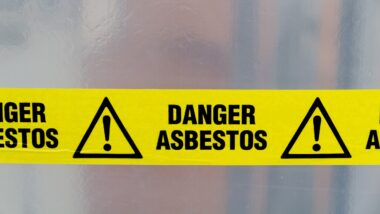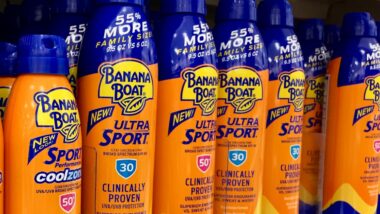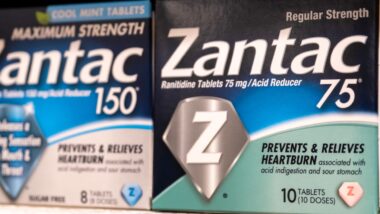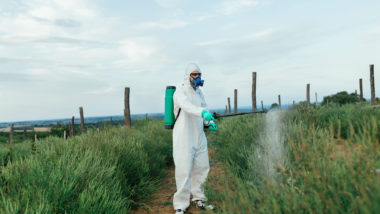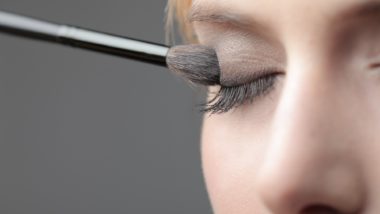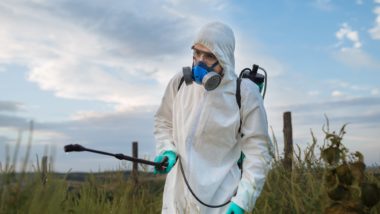Top Class Actions’s website and social media posts use affiliate links. If you make a purchase using such links, we may receive a commission, but it will not result in any additional charges to you. Please review our Affiliate Link Disclosure for more information.
A proposed class action lawsuit filed against Johnson & Johnson Consumer Inc. and Bausch Health US, LLC alleging the companies concealed asbestos in their talcum powder products with deceptive advertising faces a motion to dismiss, with each company arguing that a fifth amended complaint failed to set forth cognizable claims.
The lawsuit was initially filed in May 2019, in San Diego Superior Court, raising claims under California’s Consumer Legal Remedies Act, False Advertising Law, and California’s Unfair Competition Law. It was removed to the United States District Court for the Southern District of California shortly after, in July 2019.
After four complaints were dismissed by a federal judge with leave to amend, Plaintiffs Louisa Guttierez and Debbie Luna filed their fifth amended complaint on Aug. 24, 2020, alleging the companies misrepresented that their talc products were “pure” and “asbestos-free.” Asbestos, found to cause cancer, may contaminate talc-based baby powder.
What Are the False Advertising Claims in the Talc Products Lawsuit?
In the fifth amended complaint, Gutierrez and Luna allege that despite advertising to the contrary, the talc products sold by Johnson & Johnson and Bausch were “neither ’pure,’ ‘most pure,’ nor ‘asbestos-free.’” Each assert that they would not have purchased the products had they known they were “contaminated with asbestos, lead, arsenic, silica, and/or talc-containing asbestiform fibers.”
Gutierrez and Luna argue that they were “defrauded into purchasing the Talcum Products, products which are easily replaced with other, and safer alternatives, such as corn starch — an alternative that Johnson & Johnson currently sells as baby powder to this day.”
The complaint also cites what Gutierrez and Luna refer to as “Defendants’ History of Deceptive Advertising,” claiming the products were “pure” by including several advertisements from various decades. Additionally, the complaint also references scientific literature and studies dating back to the 1930s regarding the health risks associated with talc exposure to support the argument. Gutierrez and Luna said that despite reports revealing asbestos and concerns issued by California’s Environmental Protection Agency and the Office of Environmental Health Hazard Assessment, the talc products continued to be marketed by the companies as safe.
What Were the Arguments in the Motions to Dismiss?
In its motion to dismiss, Johnson & Johnson argued that Gutierrez and Luna didn’t specify which advertisements they relied on, making conclusory assertions “that they were ‘exposed to Defendant’s marketing for most of’ their lives.”
Similarly, Bausch contended in its motion that “There is no explanation of what it means to be ‘exposed’ to advertising.” Bausch also maintained that it only purchased Johnson & Johnson in 2012, despite allegations of deceptive advertising conduct occurring “for many decades.”
The companies also argued that the new complaint sets forth a derivative Proposition 65 claim, contending it was already dismissed by the court in a prior complaint.
 What Are the Health Risks of Talc?
What Are the Health Risks of Talc?
According to the U.S. Food & Drug Administration, talc is a natural mineral found in the earth commonly used to make personal care products such as cosmetics and baby powder. Since talc occurs in the earth near asbestos — a known carcinogen — it can become contaminated if mining sites are not selected carefully and sufficient testing isn’t conducted.
In recent years, increased evidence demonstrates that asbestos-contaminated talc products may be linked to ovarian cancer, resulting in thousands of lawsuits being filed against Johnson & Johnson by women who regularly used their talc-containing baby powder.
Asbestos exposure may also cause stomach cancer, lung cancer, and other types of cancers. According to the American Cancer Society, “Talc that has asbestos is generally accepted as being able to cause cancer if it is inhaled.” The Society also notes that use of talcum powder may slightly increase uterine cancer risks in women past menopause.
Have Johnson & Johnson Talc Products Been Recalled?
In October 2019, Johnson & Johnson issued a voluntary recall of its baby powder product after testing revealed that a sample contained asbestos. The FDA advised that consumers should not use the specific lot number that was recalled.
Following the filing of thousands of lawsuits alleging cancer links, Johnson & Johnson announced that the company was discontinuing its sale of talc-based baby powder in the U.S. and Canada in May 2020. In its announcement, the company claimed its decision was related to “changes in consumer habits and fueled by misinformation around the safety of the product and a constant barrage of litigation advertising.”
Notwithstanding Johnson & Johnson’s decision to pull the talc baby powder product from the shelves, the company indicated that they believe the product to be safe and will continue to “vigorously defend the product” in litigation.
Can I File a Talc Products Lawsuit?
If you regularly used talcum powder products and developed ovarian cancer, mesothelioma, or another type of cancer, you may be able to file a lawsuit. You might also be able to join a class action lawsuit to recover your damages in a class action settlement. In recent years, there have been a number of class action lawsuits resulting in sizeable verdicts for women diagnosed with ovarian cancer that juries found were linked to talc products. An experienced attorney can discuss your legal rights and remedies.
The Johnson & Johnson Talc Products Lawsuit is Gutierrez et al. v. Johnson & Johnson Consumer Inc. et al., Case no. 3:19-cv-01345-DMS-AGS, in the United States District Court for the Southern District of California.
Join a Free Johnson’s Baby Powder Class Action Lawsuit Investigation
If you or your loved one was diagnosed with ovarian cancer and used a baby powder product such as Johnson and Johnson Baby Powder or Shower to Shower, submit your information now in the form on this page for a free and confidential case evaluation.
You may qualify to pursue compensation for your medical bills, pain and suffering, and other damages.
See if you qualify by filling out the free form on this page.
ATTORNEY ADVERTISING
Top Class Actions is a Proud Member of the American Bar Association
LEGAL INFORMATION IS NOT LEGAL ADVICE
Top Class Actions Legal Statement
©2008 – 2024 Top Class Actions® LLC
Various Trademarks held by their respective owners
This website is not intended for viewing or usage by European Union citizens.
Get Help – It’s Free
Join a Free Johnson’s Baby Powder Class Action Lawsuit Investigation
Failing to warn consumers about the danger of baby powder cancer could make companies liable for your injuries. If you used Johnson’s Baby Powder or Shower to Shower body powder and were diagnosed with ovarian cancer or mesothelioma — or your loved one was — you may have a legal claim.
Please Note: If you want to participate in this investigation, it is imperative that you reply to the law firm if they call or email you. Failing to do so may result in you not getting signed up as a client or getting you dropped as a client.
Submit your information now for a free case evaluation!
E-mail any problems with this form to:
Questions@TopClassActions.com.


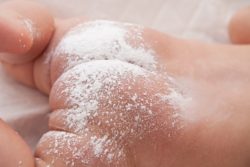 What Are the Health Risks of Talc?
What Are the Health Risks of Talc?